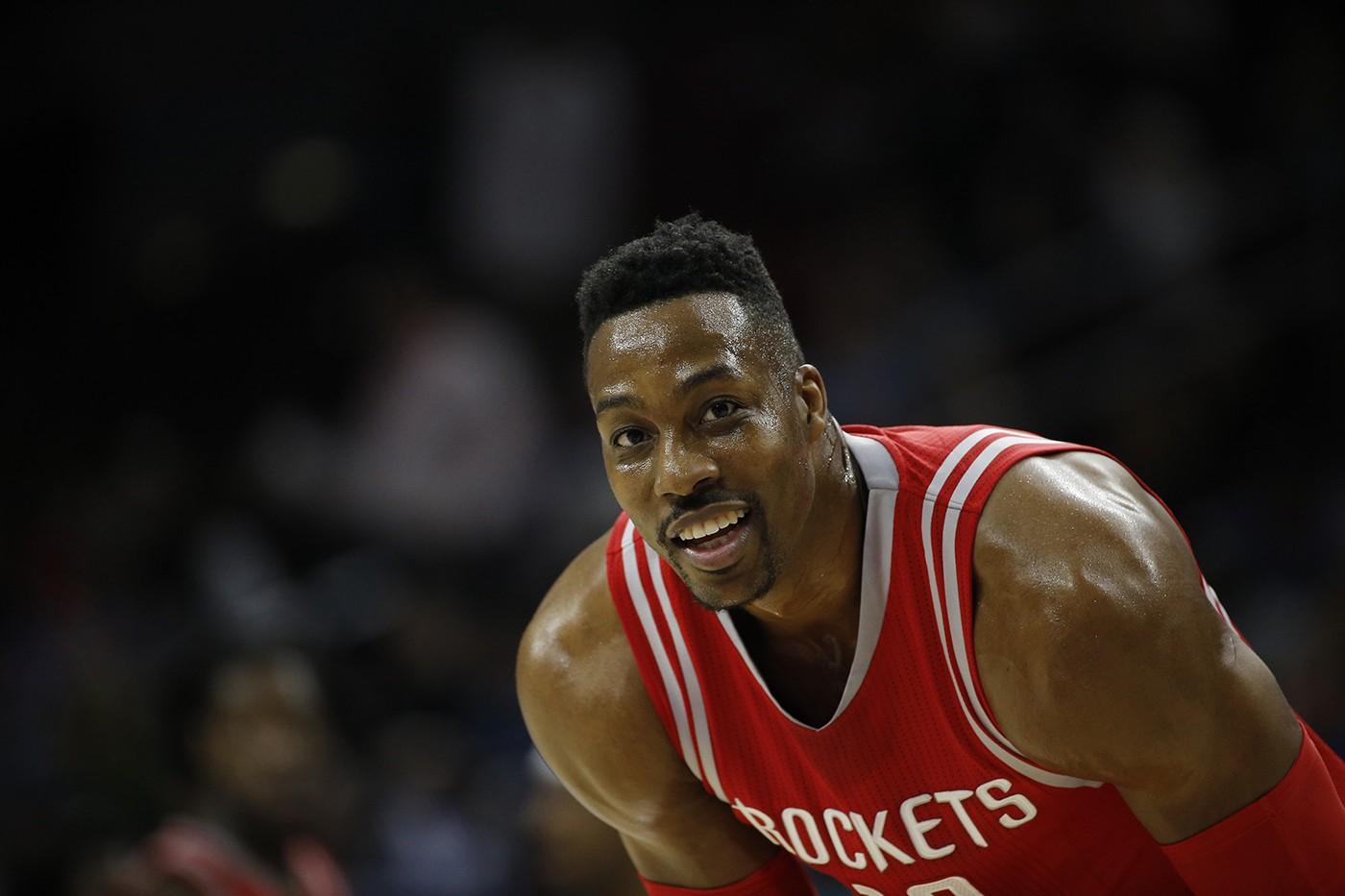
Imagine a world in which Dwight Howard would just listen to our pleas. Quit complaining! Get out of the post! Accept your fate as a role player! In recent stints with the Lakers and Rockets, Howard has been shamed and subsequently humbled. We’ve been made to believe that he is not a franchise center anymore, or the centerpiece of a team. But none of that matters. We push narratives in the NBA, but the characters in these stories are not dirigible. Howard’s remarkably candid interview on TNT’s Inside the NBA in May was many things, but it wasn’t the portrait of a man ready to fade into the background. His decision yesterday all but confirms that.
The Atlanta Hawks and Howard have agreed in principle to a fully guaranteed three-year, $70.5 million deal, according to The Vertical’s Shams Charania. Team executives around the league had predicted to Bleacher Report’s Howard Beck that Dwight’s starting salary to be in the $10 million to $15 million range; Howard, in his first year with the Hawks, will earn nearly twice that, and likely more than what he would’ve had he opted into his final year with the Rockets. In an offseason when everyone has had to recalibrate their expectations of what NBA contracts are supposed to look like, it’s a strange, comforting feeling to know that, at least in raw dollars and cents, Howard’s ability is as valuable as it’s ever been.
Theoretically, there were better fits than Atlanta. Howard would have been the latest in a procession of reclamation projects that the Mavericks have taken on, to varying degrees of success. He would’ve given Dallas the rim protector they’ve been seeking for the past two off seasons. He would’ve been embedded in a team culture built around the stability of Mavericks head coach Rick Carlisle (since leaving Orlando, Dwight has played for five coaches in four years), who has had experience taking players with Howard’s skill set and putting them in positions to succeed. Rather than play in the shadow of past franchise greats the way he did on the Lakers, he would’ve played alongside one in Dirk Nowitzki, who is no threat to Howard’s ego.
He could’ve signed with the Blazers, a team in similar need of a true defensive anchor in the middle. The team, built around the sweet shooting of Damian Lillard and C.J. McCollum, could have replicated some of the elements that allowed Howard to be so effective in the first half of his career. The team puts a premium on team chemistry, and the culture of inclusion that Lillard’s leadership has fostered seemed like an ideal situation for Howard to just be one of the guys. Lillard is dynamite in the pick-and-roll, and playing with one of the best point guards in the league would open up a world of possibilities for Howard.
But those “ideal fits” project a version of Howard that hasn’t materialized. Atlanta presents the 30-year-old center with the opportunity for a homecoming (he was born in the city), and one last shot at resuming the type of stardom he’s been accustomed to for much of his career. The Hawks’ recent success has come largely anonymously — even at their peak, when the team yielded four All-Stars in 2015, the team’s players were packaged together like one amorphous blob. Howard, baggage and all, brings star power with him.
There’s a come as you are warmth to the hometown return, which is good for Howard, because I don’t think he knows how to arrive any other way; he will instantly be the most recognizable Hawks star since Dominique Wilkins, and he’ll once again take over as the center of attention, uninhibited by the subdued personalities on the roster.
By signing Howard, the Hawks are making a statement, though it’s still unclear where they’re going with it — they’re a sentence without a predicate. Kent Bazemore agreed yesterday to a four-year contract with the Hawks worth $70 million, which would appear to take Atlanta out of the running to re-sign their homegrown star Al Horford (it’s been reported that he wasn’t a fan of the Howard signing, and that he is leaning toward the Celtics or Wizards as landing spots). But the team is keeping those embers alive, along with the notion of a bizarre Horford-Howard–Paul Millsap front line that is as retro-futurist as it is modern. It makes as little sense in the short term as it does in the long term, but it’s at least interesting to see the Hawks try something different.
Things will change for the Hawks; things will largely stay the same for Dwight. Their union might best be understood by how each party uses the other: Through Howard, the Hawks are moving toward a new future, one that, with any luck, retains the skeleton of its current model, but with a new face; in Atlanta, Howard hopes to reanimate the past by going back to where it all started. Dwight Howard and the Hawks are both investing in time machines. They’re just traveling in opposite directions.

